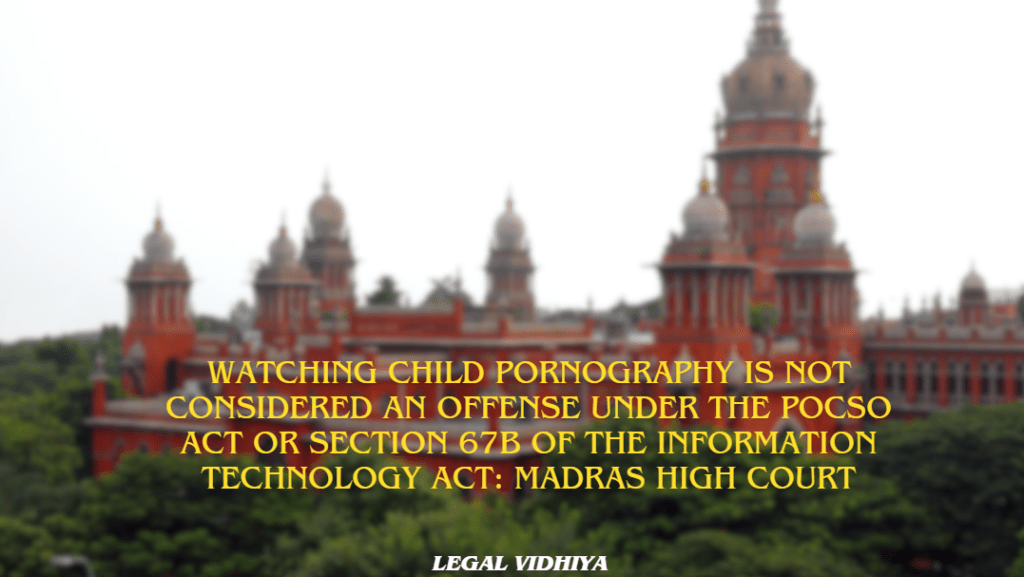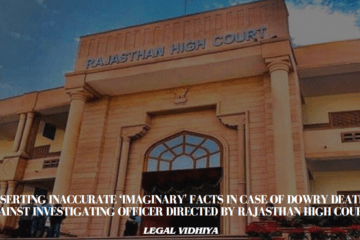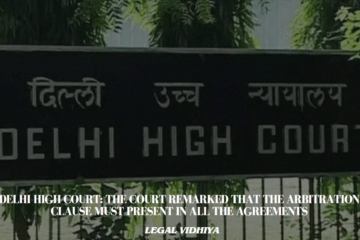
The court dismissed the prosecution initiated against a 28-year-old man accused under the POCSO and IT Acts for downloading and viewing child pornography. It clarified that the offenses would only be established if the individual had distributed the downloaded pornographic content publicly or to others.
Justice N Anand Venkatesh asserted that merely downloading and viewing child pornography on a personal electronic device does not amount to an offense under the POCSO Act and the IT Act. The escalating accessibility of sexually explicit material on the internet is giving rise to increasing concerns about porn addiction. With just a click of a button, young individuals can find themselves exposed to countless pages of adult content, as noted by the judge.
In the current instance, a case was initiated based on a letter received by the Additional Deputy Commissioner of Police (Crime against women and children), alleging that the accused had downloaded child pornographic material onto his mobile device. Subsequently, as part of the investigation, the mobile phone was confiscated, and a forensic analysis was carried out. The analysis confirmed the presence of two files on the mobile phone containing child pornography content featuring teenage boys.
The court acknowledged the offense under Section 67B of the Information Technology Act 2000 and Section 14(1) of the Protection of Children from Sexual Offences (POCSO) Act. In response, the accused approached the High Court, seeking to quash the ongoing criminal proceedings.
Regarding the allegations under Section 67B of the IT Act, the court emphasized that for the accused to be charged, there must be evidence of publishing, transmitting, or creating materials depicting children engaged in sexually explicit acts or conduct. The court clarified that the section doesn’t criminalize mere possession or viewing of child pornography. Therefore, the court highlighted that the Act does not encompass situations where an individual has simply downloaded child pornography on their electronic device and watched it without further action.
What is POSCO?
The Protection of Children from Sexual Offences Act (POCSO), 2012 was enacted to establish a robust legal framework aimed at safeguarding children from sexual assault, harassment, and pornography. The primary focus of the Act is to prioritize the welfare of the child throughout the legal proceedings. The Act is designed to be user-friendly, incorporating mechanisms for child-friendly reporting, evidence recording, investigation, and the expeditious trial of offenses through designated Special Courts.
Encompassing various offenses for which an accused can be held accountable, the POCSO Act goes beyond penile-vaginal penetration and extends to other forms of penetration, including acts of immodesty against children. The offenses outlined in
the Act cover a range of actions, including penetrative sexual assault, sexual assault through inappropriate touching, sexual harassment involving gestures or remarks, and child pornography.
The Act is gender-neutral, applying equally to both children and accused individuals. Concerning pornography, the Act criminalizes the viewing or collection of pornographic content involving children. Additionally, the Act deems abetment (encouragement) of child sexual abuse as an offense.
In a 2019 amendment, the POCSO Act was made more stringent. The minimum punishment for penetrative assault was increased from 7 to 10 years, and for victims below 16 years, the minimum punishment was raised to 20 years. The Act allows for a maximum punishment of life imprisonment, with the provision for the death penalty in cases of aggravated penetrative assault.
Case Title: S Harish v Inspector of Police and Another
Anshra Zafar, a 2nd year B.A.LLB student at IILM University, Greater Noida, 4th semester. An intern under Legal Vidhiya.
Disclaimer: The materials provided herein are intended solely for informational purposes. Accessing or using the site or the materials does not establish an attorney-client relationship. The information presented on this site is not to be construed as legal or professional advice, and it should not be relied upon for such purposes or used as a substitute for advice from a licensed attorney in your state. Additionally, the viewpoint presented by the author is of a personal nature.




0 Comments